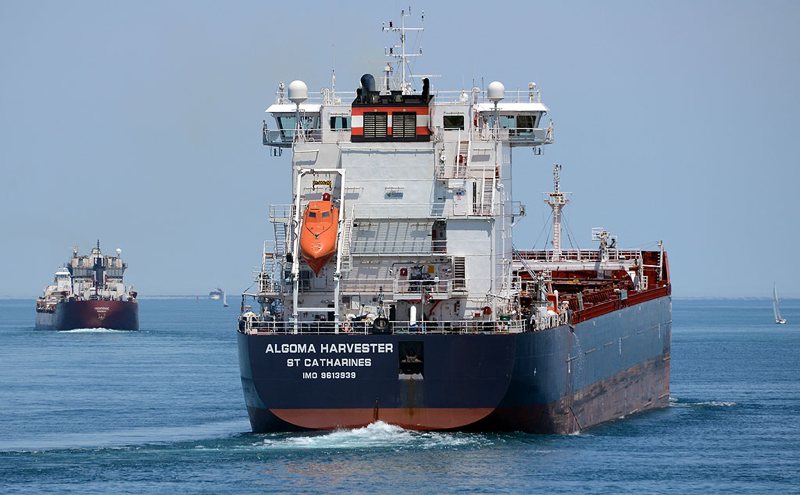Growing Employment Opportunities
There is a growing demand for qualified personnel to operate and maintain vessels, including in the Great Lakes-St. Lawrence maritime transportation system. In fact, nearly the entire U.S. shipboard maritime workforce is projected to turn over in coming decades. For the overall U.S. maritime workforce, there are projected to be more than 35,000 job openings for sailors and marine oilers; 29,000 captains, mates, and pilots; and 9,500 ship engineers.
Working as a Mariner

Working as a mariner on a vessel is a challenging but rewarding job for adventurous people who like to travel, spend time outdoors on the open waters of the Great Lakes, and have ample free time when home on shore. Maritime jobs offer good wages and benefits and an exciting and fulfilling work environment. Annual compensation for mariners varies greatly depending on experience, the employer, union affiliation, job location, nature of the job (rank), and the number of months worked in a year. The Bureau of Labor Statistics provides general data on wages for shipboard jobs in the United States as does the Department of Employment and Social Development for shipboard jobs in Canada.
In the Great Lakes and St. Lawrence Seaway, the shipping season usually starts in March and concludes in early January for the winter. During the shipping season, mariners often work on what is called a “60-30 schedule,” which means 60 days of work followed by a 30-day break. This may vary depending on union affiliation, seniority, employer and other factors. Mariners get a full year’s pay during the shipping season. When winter comes and the shipping season ends, mariners often go on vacation, spend time at home, or find other work to augment their income until the new shipping season begins.

Those who are interested in entering the Great Lakes-St. Lawrence maritime workforce can join the deck, engine or steward’s department in an entry-level position by contacting a company or a union hall or training at a maritime academy, college, school or training establishment.
Shipboard jobs also open a wide range of opportunities on shore for career advancement. Working aboard a ship requires a strong commitment and professionalism. Employers recognize this and future careers may involve working in logistics, or working in the energy sector with a marine engineering background. Mariners can easily broaden their career opportunities with new skills, training and education.
For more information on shipboard careers, consult the articles below:


